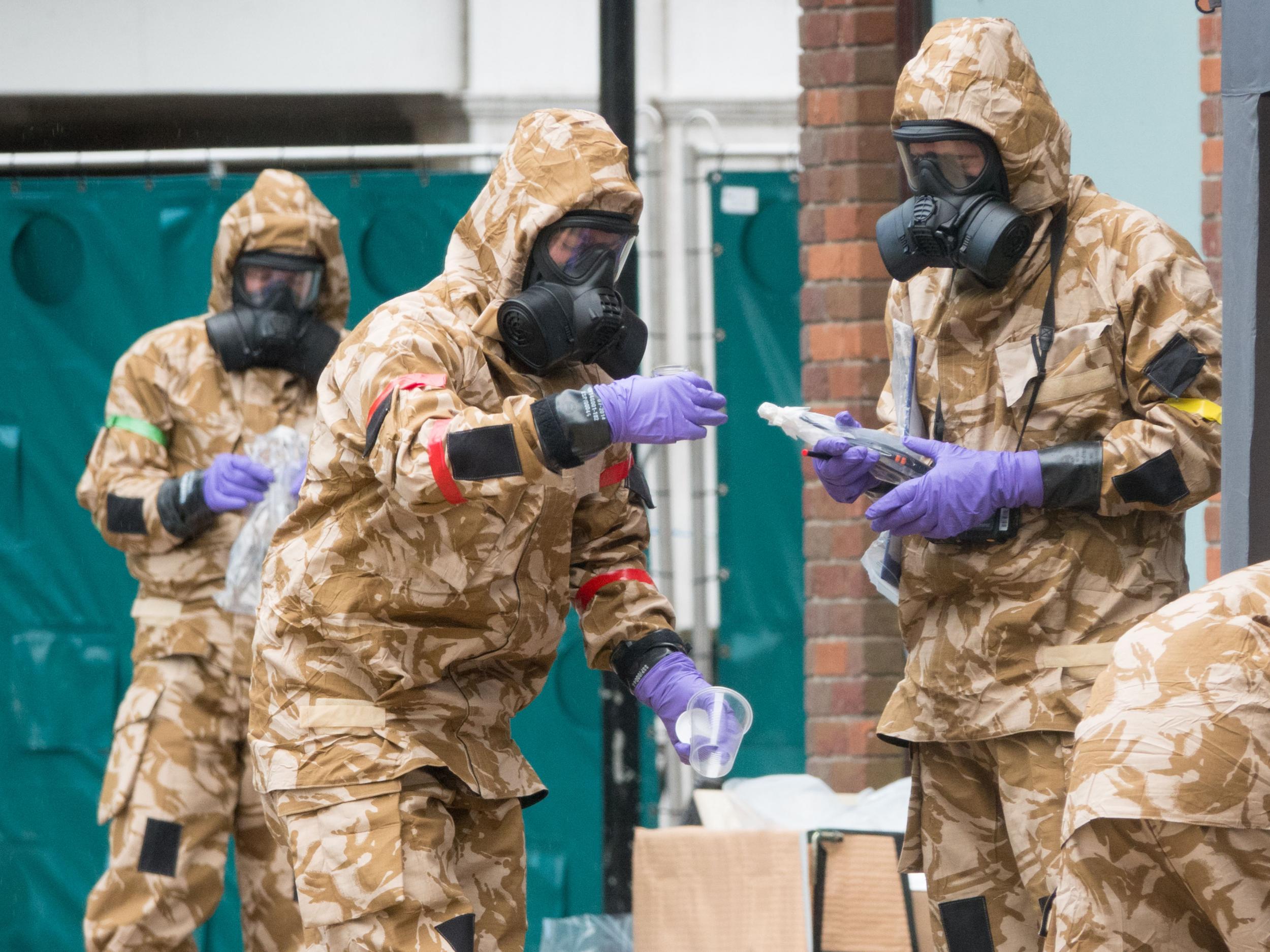UK calls for global chemical weapons conference following Salisbury nerve agent attack
Foreign Secretary asks for 'all right-thinking states to come together'

Your support helps us to tell the story
From reproductive rights to climate change to Big Tech, The Independent is on the ground when the story is developing. Whether it's investigating the financials of Elon Musk's pro-Trump PAC or producing our latest documentary, 'The A Word', which shines a light on the American women fighting for reproductive rights, we know how important it is to parse out the facts from the messaging.
At such a critical moment in US history, we need reporters on the ground. Your donation allows us to keep sending journalists to speak to both sides of the story.
The Independent is trusted by Americans across the entire political spectrum. And unlike many other quality news outlets, we choose not to lock Americans out of our reporting and analysis with paywalls. We believe quality journalism should be available to everyone, paid for by those who can afford it.
Your support makes all the difference.Britain is calling for a global conference on chemical weapons in wake of attacks in Syria, Iraq and Salisbury.
The proposed meeting of the signatories of the Chemical Weapons Convention has already received the backing of 10 other states, apart from the UK. It needs the support of 64 of 192 signatories to trigger a conference within 30 days.
Foreign Secretary Boris Johnson said the special conference would aim to “reaffirm and defend” the ban on use of the outlawed weapons and strengthen the Organisation for the Prohibition of Chemical Weapons.
The move comes just under three months after Sergei and Yulia Skripal were poisoned with the Soviet-era nerve agent Novichok in an attack Britain has blamed on Russia.
The sponsors of the letter want the conference to examine ways the international community could work together to strengthen and protect the convention.
“The world came together in 1997 to outlaw the development, stockpiling and use of these vile substances through the Chemical Weapons Convention,” said Mr Johnson.
“But in recent years we have seen chemical attacks by the Assad regime in Syria, by Daesh in Syria and Iraq, in Malaysia and even here in the UK in Salisbury.
“Today we have brought together 11 states to formally ask the director general of the Organisation for the Prohibition of Chemical Weapons to convene a special Conference of the States Parties to the Chemical Weapons Convention.
“We call on all right-thinking states to come together next month to take action to reaffirm and defend the ban on chemical weapons, and to strengthen the Organisation which we have entrusted with overseeing it.”
Earlier this week, medics who treated the Skripals told of how they “expected them not to survive” when they first arrived at Salisbury District Hospital. When Detective Sergeant Nick Bailey was brought in with similar symptoms, they feared many more could fall victim to the chemical weapon and trigger an “all-consuming crisis”, said the hospital’s director of nursing Lorna Wilkinson.
The outgoing head of the Organisation for the Prohibition of Chemical Weapons, Ahmet Üzümcü, suggested last week the watchdog could start name the culprits behind chemical attacks, saying the attempted murder of the Skripals should be a “serious wake up call” to the international community
Press Association contributed to this report
Join our commenting forum
Join thought-provoking conversations, follow other Independent readers and see their replies
Comments